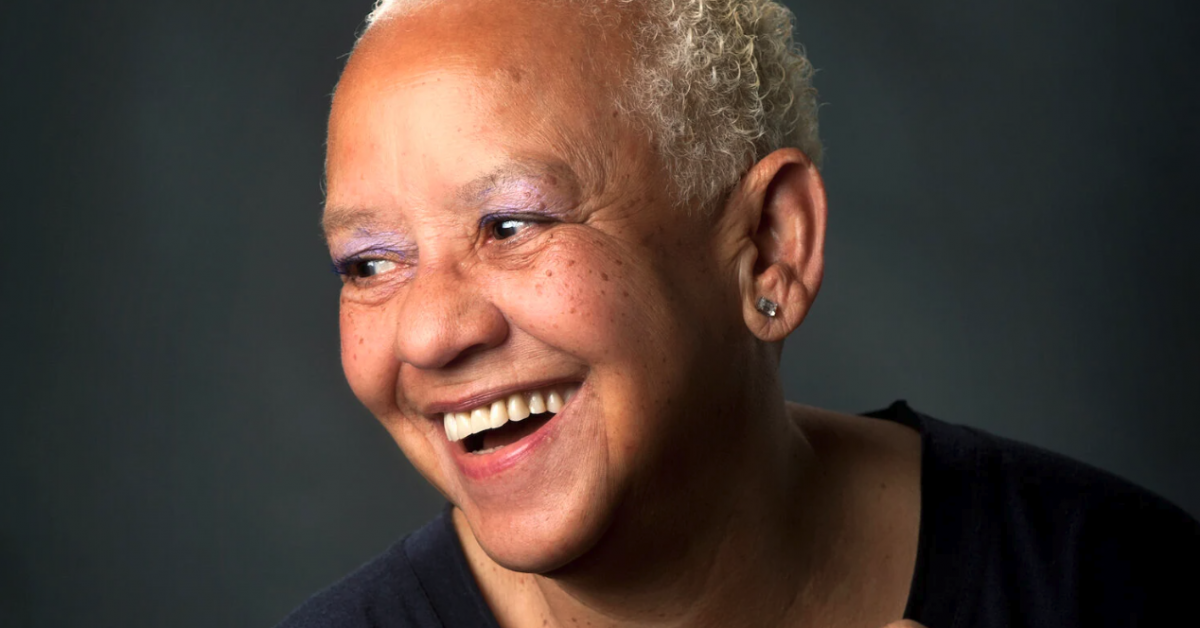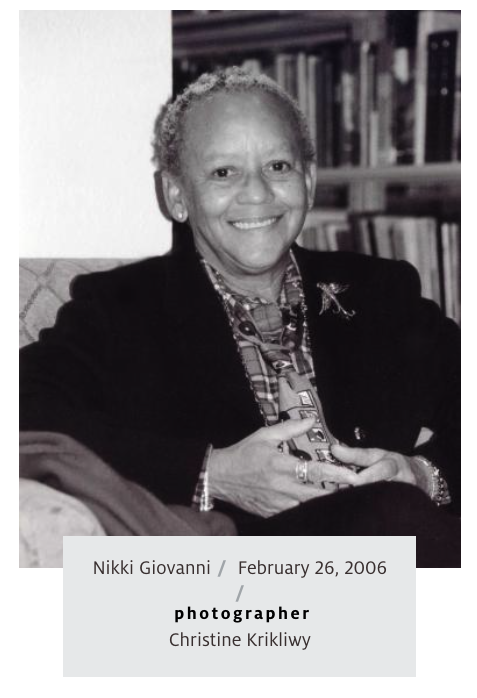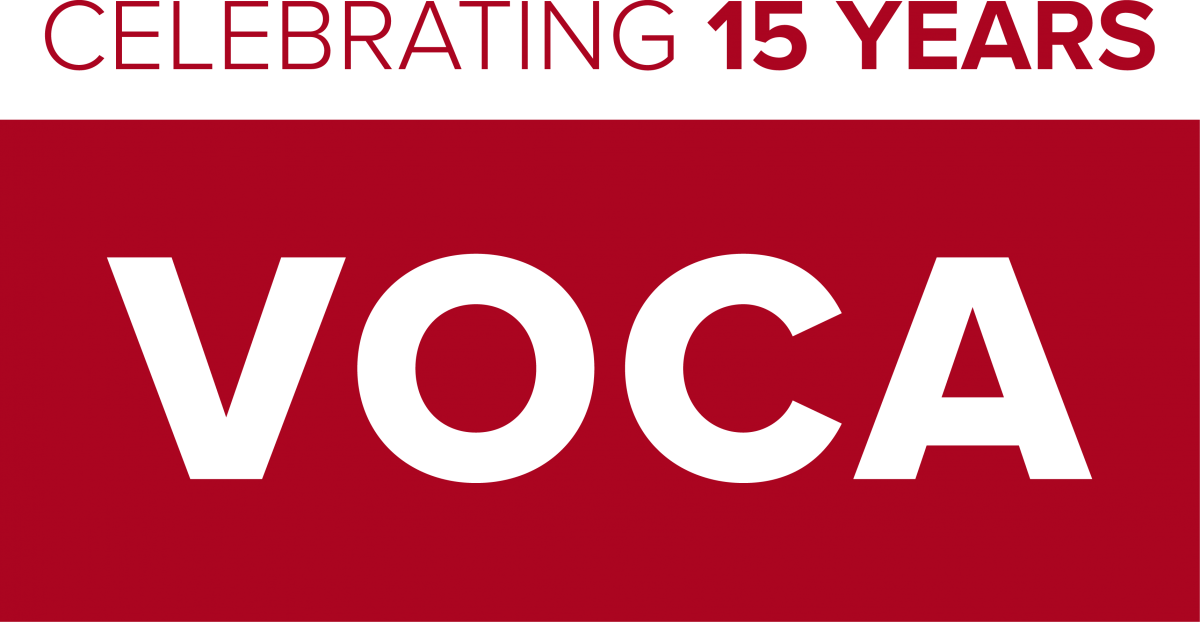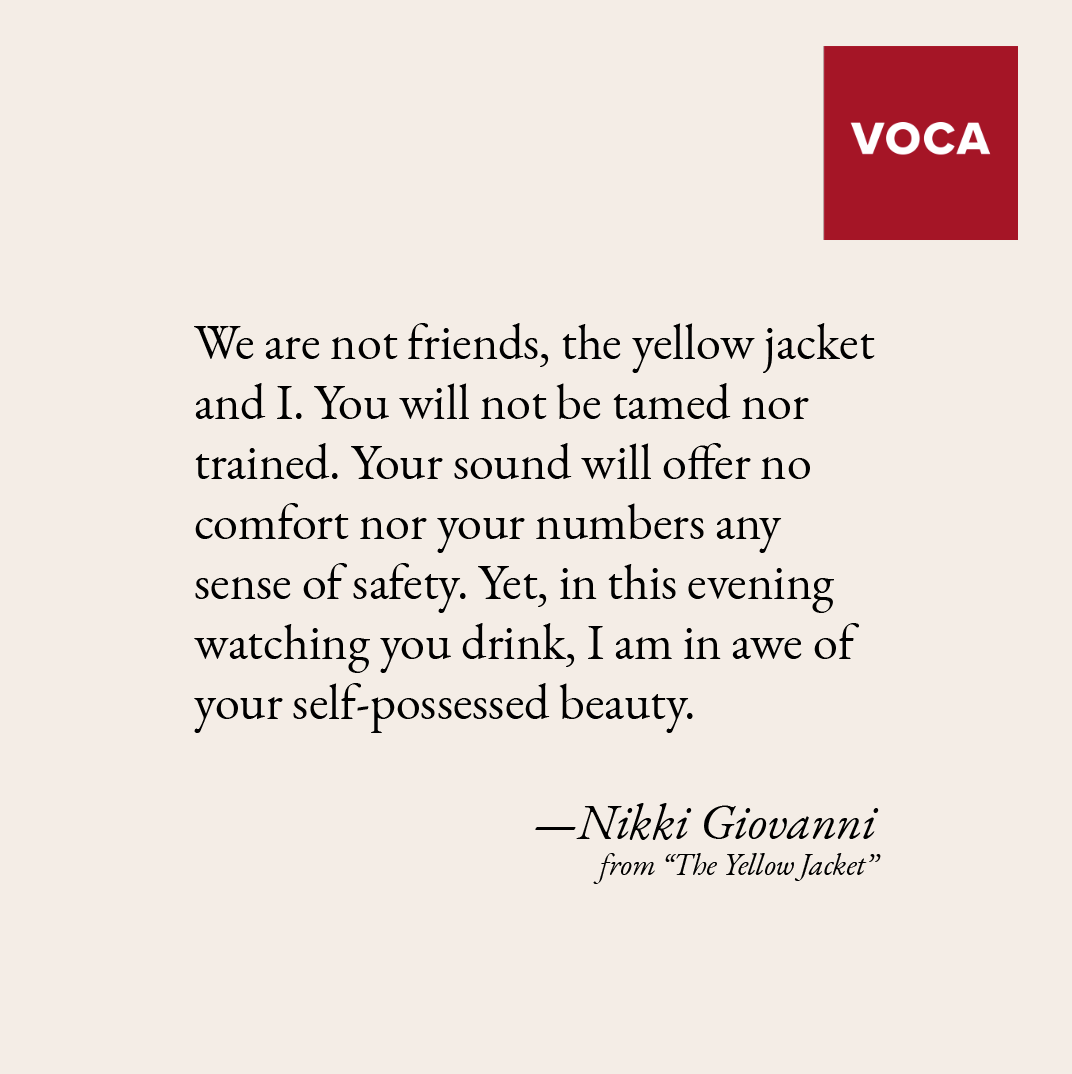This piece was authored before Giovanni's passing. We share it now to honor her extraordinary life and legacy.
I would have never come across this poem if it weren't for Voca.

passed away on December 9, 2024. In this piece, guest blog writer Sidanthi Siriwardena takes a deep dive into
"The Yellow Jacket," a poem she read at the Poetry Center in 2006, preserved in the Voca archive.
I commune with ghosts.
That's what my friends say when I play them a clip of a long-dead poet reading poetry and gush like I've heard back from a loved one who hasn't kept in touch for centuries.
It's something that's brought me a great sense of comfort and relief, this burrowing for buried treasure, this quest to connect, across the ages with those who penned words that more or less saved me. Grainy, with static buzzing at the heel of every word, I'd been quite content to listen to Sylvia Plath or a gloriously intoxicated F. Scott Fitzgerald wax poetic to me over the annals of time.
I stumble across these rare riches usually on social media, on YouTube where their authenticity cannot be verified but where the comment sections are full of people who are certain that's definitely Tolstoy, Hemingway, or Sylvia Beach vocalizing their works in the recordings. I collect them as most would accumulate close friends, companions, or lovers. As an avid reader, it's as close as I will ever get to feeling a true sense of belonging. You see, like most bibliophiles, I'm a being out of time, out of place too, perhaps, but mostly out of time.
"I've had enough death. I was just tired of death," Giovanni says,
explaining why she didn't swat or kill the yellow jackets
that invaded her country home and garden.
There are nights when I do nothing else but listen to these poetry recitations and come upon hidden gems that somehow didn't make it into our poetry anthologies in high school or college. There weren't a great many American poets in our school or college curriculum in Sri Lanka and I suspect our British colonial heritage had something to do with it. How else do you explain the absence of Allen Ginsberg, Adrienne Rich and, best of all, that unicorn among unicorns, Nikki Giovanni?
She sat across from James Baldwin in the first clip I ever saw of her, on a 1971 program called SOUL! She held her own while he called her "baby girl" and explained the father wounds of African American men. If it weren't for that heady interview in a UK studio suffused with cigarette smoke, I would not have uncovered Nikki Giovanni, or eventually stumbled across my favorite nature poem of hers, archived on Voca, called "The Yellow Jacket." Although YouTube contained several episodes of SOUL!, including Giovanni's interviews with famous writers and even athletes such as Mohammed Ali, poetry readings were few and far between. My curiosity led me to googling her poetry collections and archives when a link to Voca's recordings of Giovanni caught my eye.

Listen to the poem
While the idea of anything being "inaccessible" may sound ludicrous in 2024, the digital age, the paradox is that some things really are beyond the reach of those who do not belong to a certain place, club, university, alum, organization or fall within a certain pay grade. I have never come across a single copy of any of her poetry anthologies in the Colombo Public Library or a local "English" bookstore. That's how I know her poetry has been kept from me. Online clips, videos, and interviews were all I had to go on to understand who this enigmatic poetess with a cheeky grin was or is—because for about a day or two after watching her James Baldwin interview, I was convinced she was not among the living, like most of my literary heroes.
JSTOR allows free users like me 100 articles a year and I don't begrudge this limitation or act of gatekeeping because it's necessary. Knowledge, ideas, profound works of art, and critical thoughts are precious commodities that cannot be accessible to all precisely due to their value. Isn't that the age-old argument? The reasoning behind why only part of an academic website is accessible to a paying few? But then how do you explain Voca? An archive of more than 60 years of American poetry, accessible to all, for free and in audio and visual and fully transcribed form?

how do you explain Voca?
An archive of more than 60 years of American poetry,
accessible to all, for free and in audio and visual
and fully transcribed form
It was Jorge Luis Borges who said "Poetry always remembers that it was an oral art before it was a written art" and perhaps that's why I love listening to poetry to deciphering words printed on a page. And there's always something magical about a poet reading words they themselves set down that brings them to life in a way that is difficult to replicate by another. There's a sensory aspect of poetry that's missing when it's simply absorbed in silence. Disembodied voices composed of nothing but soundwaves have made me feel seen and heard for as long as I can remember but Voca's archives have also helped me put a face to those dear voices.

Having grown up in a veritable hornet's nest of insects, yellow jackets were one of the thousands of winged creatures that plagued our lives here in my island home. Homemade concoctions, sprays and pungent creams thick with coconut and citronella oil have been used for decades to ensure their activities do not compromise your health. There's no getting away from them in the tropics. They were here before us and they will outlive us all, a million to one, and perhaps that's why Giovanni's poem hit a nerve.
This clip was my first encounter with Nikki Giovanni without her signature afro, slender frame, and beaded necklaces brushing against her colorful Kurta tops of the 70s. But this Voca track was Giovanni in her grandma era, with her close-cropped salt and pepper hair, pantsuit and a file folder full of poems.
I love how she begins the reading recorded in 2006 by explaining her state of mind during the writing of the piece. Recounting the death of her beloved mother and sister within the span of several months, she calls 2005 a "hard year." It's difficult to miss her uncanny wit and charm in these remarks that set the mood for a poem about a bothersome insect, of all things. It must have been her state of mind, she seems to say, that this pesky little bug occupied such a vast mental space that she had put pen to paper.
"I've had enough death. I was just tired of death," she says, explaining why she didn't swat or kill the yellow jackets that invaded her country home and garden.
"Excuse me! They live here, you're hired help," she had once replied to caterers who asked for bug spray to keep the pesky insects at bay. “We have to do a little better with the things that scare us," she says, on-brand with her general intolerance for intolerance before the reading begins in earnest.

In the poem, Giovanni talks about fulfilling a duty “to our feathered friends" by filling the birdbaths but simultaneously judges the yellow jacket for performing no real service except "buzzing to annoy me." After listing the negative attributes that separate the Yellow Jacket from the utilitarian and pleasant-sounding songbirds, she comes to the realization that no creature exists for the pleasure of us humans or for our usefulness.
"The self-possessed beauty" she witnesses in the yellow jacket is its right to exist in an imperfect world where it is neither welcome nor unwelcome. It reminded me of the conditions of our own lives and that of the insects and "vermin" dictated by human standards across the ages. While we spray, swat and fumigate our homes to rid ourselves of yellow jackets and other classes of insects unfit to share space with us, we have also been known to segregate, gas, and murder subsets of our own species throughout human history. Auschwitz and the Killing Fields of Cambodia are not the only examples that come to mind as Giovanni's own native Tennessee also lays claim to this dark legacy. This will to exterminate is a strong impulse and, dare I say, a trait that each of us must rise above to coexist—not only with nature but with the rest of humanity.
"The self-possessed beauty" she witnesses in the yellow jacket
is its right to exist in an imperfect world
where it is neither welcome nor unwelcome.
Ultimately, “The Yellow Jacket” is a poem about overcoming a sense of separation, and finding a beauty and raison d'etre, in even the most threatening of experiences. Like death, disease, like wasps and winged beauties hovering over a birthday cake on a picnic blanket. Who has a right to be here, to take up space and enjoy a drink of water?
While I cannot claim to have been ostracized to the extent of a yellow jacket, I am no stranger to being on the outside looking in. Exclusion is a form of condemnation, an intentional expulsion that's not too unlike gatekeeping. The fact that I would have never come across this poem if it weren't for Voca is not completely lost on me. For although I have never been a student of the University of Arizona, a citizen of the United States, or even a published poet, the doors were left wide open all the same. And I, like the self-possessed wasp that sits at Giovanni's birdbath and gingerly takes a cool drink of water, am richer for it. Richer and grateful for the generosity of those who keep the archives brimming and full with new and old recordings of modern poetry's greatest hits.
______
Sidanthi Siriwardena is a freelance writer, blogger and copywriter with a passion for literature and film. A former journalist with a B.A. in Mass Communication, she divides her time between writing and caring for her numerous pets. You can read her latest book reviews at @medea.rants.books.

